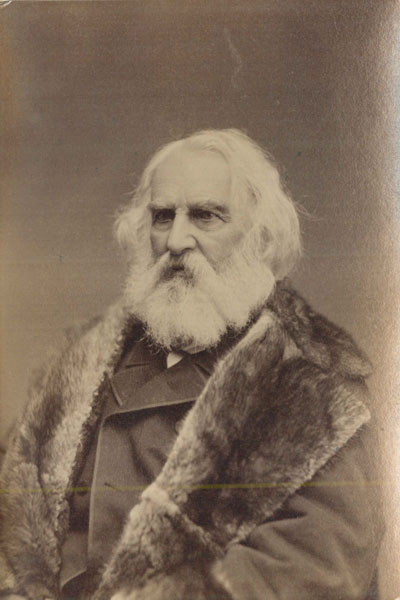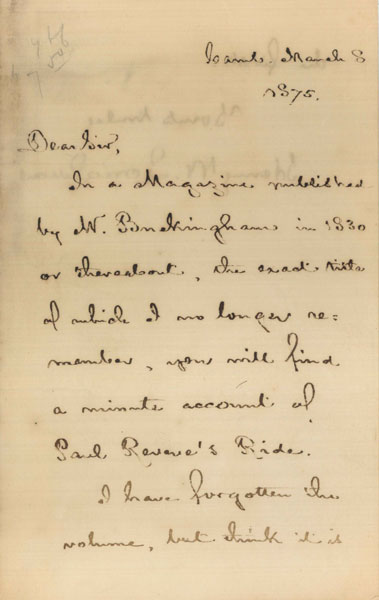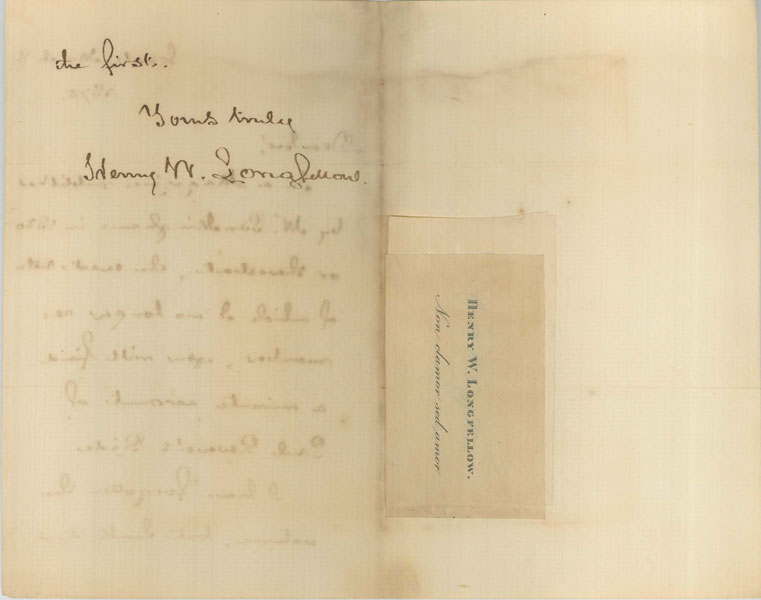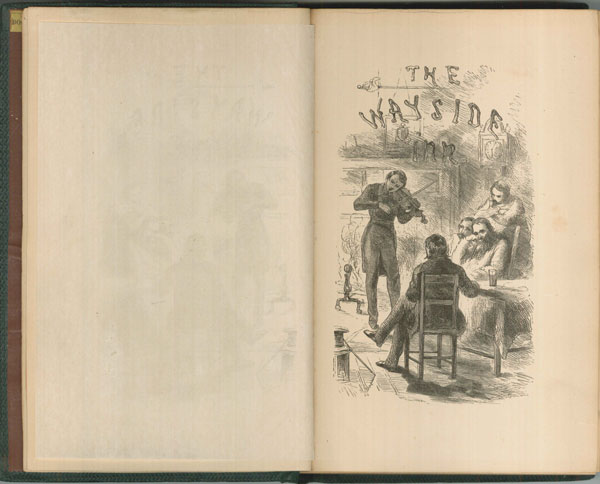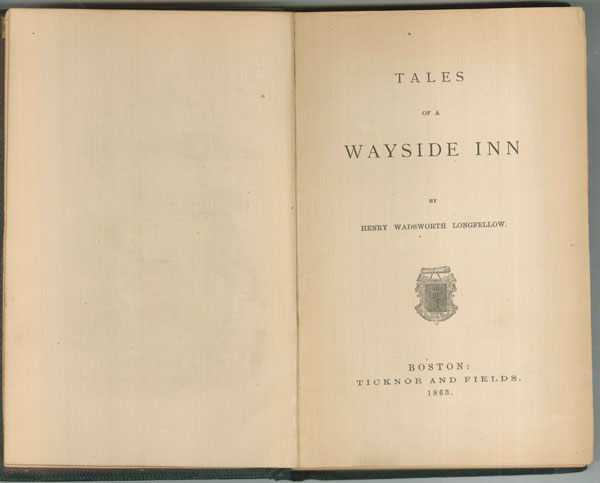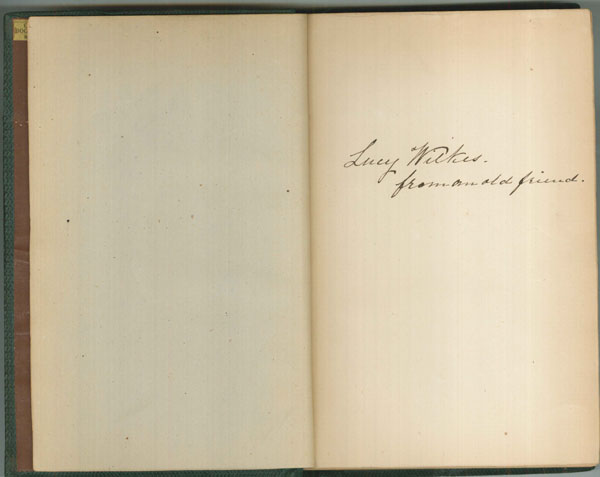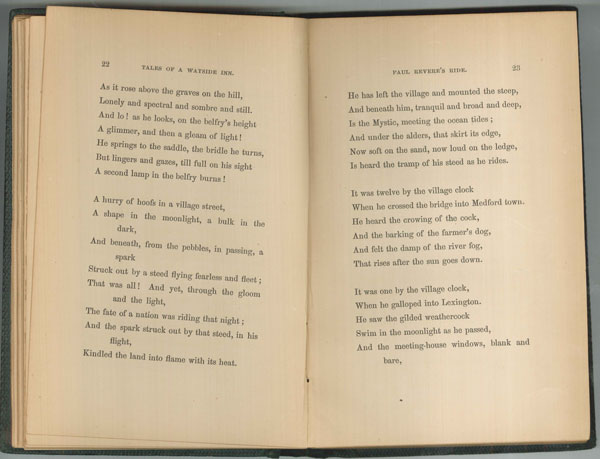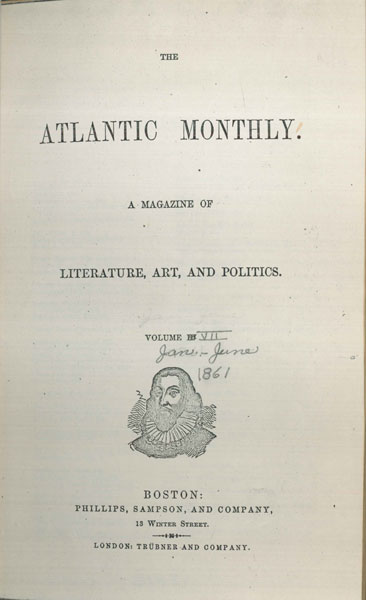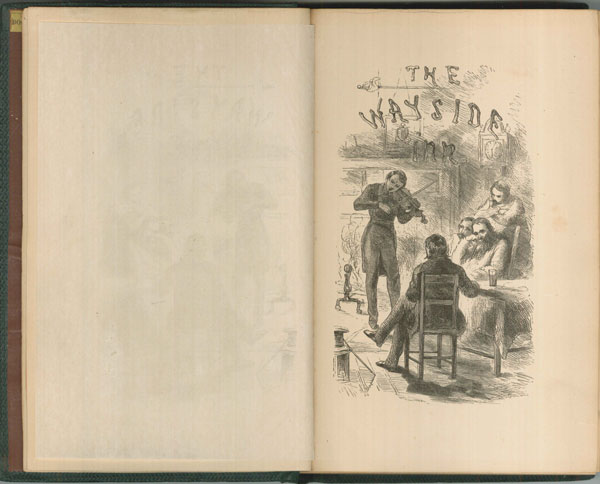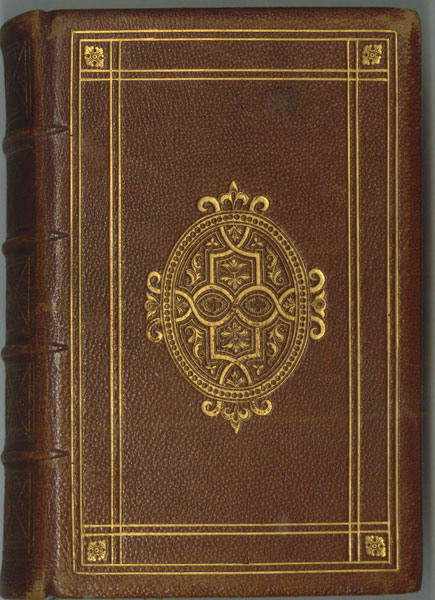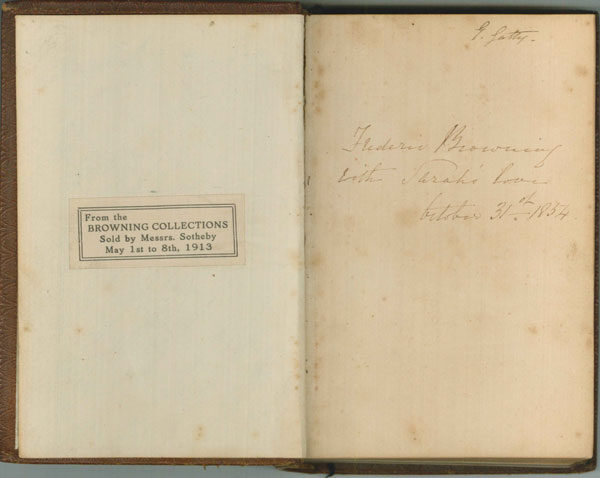Written by Melinda Creech, Graduate Assistant, Armstrong Browning Library
Henry Wadsworth Longfellow, an American poet and educator, may be best remembered for his poems, “Paul Revere’s Ride,” The Song of Hiawatha, and Evangeline. However, he was also the first American to translate Dante Alighieri’s The Divine Comedy. Longfellow, William Cullen Bryant, John Greenleaf Whittier, James Russell Lowell, and Oliver Wendell Holmes, Sr. have been identified as the Fireside Poets. The Fireside Poets wrote poetry that rivaled their English counterparts. Their poetry generally adhered to standard forms, conventional meter, and regular rhymes, making it suitable for memorization and recitation at school and home, particularly around the fireside. The Armstrong Browning Library has five letters and over ninety books by Longfellow. Several of the books are rare editions.
In this letter to an unknown correspondent, Longfellow mentions his source for “Midnight Ride of Paul Revere.”
Longfellow, Henry Wadsworth. Tales of a Wayside Inn. Boston: Ticknor and Fields, 1863.
First published in the January 1861 issue of The Atlantic Monthly, “Paul Revere’s Ride” was later reprinted in this volume.
Longfellow, Henry Wadsworth, “Paul Revere’s Ride.” The Atlantic Monthly, January 1861.
“Paul Revere’s Ride” was first published in this journal.
Longfellow, Henry Wadsworth. The Poetical Works of Henry W. Longfellow. Complete edition. London: Knight and Son, Clerkenwell Close, 1854.
This volume was part of the Brownings’ library and bears the inscription, “Frederic Browning/with Sarah’s love/October 31st 1854.”
Dante Alighieri. The Divine Comedy of Dante Alighieri. Translated by Henry Wadsworth Longfellow. Boston: Ticknor and Fields, 1867.
This is a first edition of this important translation. Longfellow was the first American to translate Dante’s Divine Comedy. He spent several years working on the translation and continued to revise the translation even after its publication. To help him in perfecting the translation and editing the proofs, Longfellow invited friends to meet with him weekly beginning in 1864. The “Dante Club” continued to meet until the translation was published in 1867.
Displayed with: 


 Maria Francesca Rossetti. A Shadow of Dante, Being an Essay Towards Studying Himself, His World and His Pilgrimage. London, Oxford, and Cambridge: Rivingtons, 1871.
Maria Francesca Rossetti. A Shadow of Dante, Being an Essay Towards Studying Himself, His World and His Pilgrimage. London, Oxford, and Cambridge: Rivingtons, 1871.
The Rossetti’s older sister used the translation of her brother, William Michael, for quotations from the Inferno and Longfellow’s translation for quotations from Purgatorio and Paradiso.
The Armstrong Browning Library also holds this lovely photograph of Longfellow’s three youngest children: Alice, Allegra, and Edith.

 This photograph was taken shortly before 1861 when their mother, Frances, was killed, her dress having caught fire in an accident. Longfellow was injured in the fire trying to save her. His facial scars led him to grow his characteristic beard. He was also emotionally scarred from the accident, mourning for her the last twenty-one years of his life. He wrote these lines eighteen years after the accident.
This photograph was taken shortly before 1861 when their mother, Frances, was killed, her dress having caught fire in an accident. Longfellow was injured in the fire trying to save her. His facial scars led him to grow his characteristic beard. He was also emotionally scarred from the accident, mourning for her the last twenty-one years of his life. He wrote these lines eighteen years after the accident.
Such is the cross I wear upon my breast
These eighteen years, through all the changing scenes
And seasons, changeless since the day she died.
-
Henry Wadsworth Longfellow, “The Cross of Snow,” 1879.

